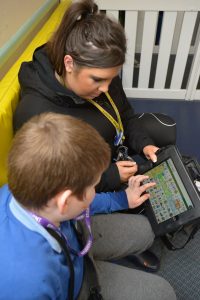Seashell Trust are exhibiting at this year’s Kidz to Adultz North event in Manchester on stand V18. Their specialist therapy team use a range of innovative approaches to AAC to enable children and young people to express themselves and communicate effectively.
Augmentative and alternative communication (AAC) refers to the communication methods used to supplement or replace speech or writing for those who have difficulty producing or understanding spoken or written language.
Sam is a pupil at Royal School Manchester who has complex needs including autism spectrum condition (ASC). When he started at Seashell Trust, Sam had difficulty expressing himself and communicating, which could leave him frustrated and unable to participate in many of the activities we might take for granted.
Sam was assessed by our speech and language therapy team, who worked with assistive technology colleagues to identify the types of AAC that would most effectively meet his needs and support him to communicate. He initially began using the Picture Exchange Communication System or PECS, which uses visual symbols to teach the learner to make requests by exchanging a symbol. PECS enabled Sam to begin developing communication skills and then to build simple sentences to make requests which would be understood by a range of people, such as his parents, carers and teachers.
Sam then progressed onto using a symbol communication book which contained a wider range of vocabulary and enabled him to communicate beyond requests, meaningfully participating in interactions with others for a range of reasons. More recently, Sam has begun using a high tech Voice Output Communication Aid (VOCA). VOCAs are electronic devices such as iPads which enable the user to communicate through digitised speech.

Sam using the Picture Exchange Communication System
Sam is now able to express himself with people in a range of different situations
He can make choices and requests and participate in social conversations for the first time. Using his VOCA, Sam chooses the food he wants to buy in the supermarket when he goes shopping and can select what he would like to eat and drink when he visits coffee shops. Using his VOCA has also given Sam more control over his environment to allow him to express that he wants ‘more’ of something really motivating or that he wants an activity to stop.
In addition to Seashell Trust’s therapy team, Sam’s fantastic staff in house and school have been essential in developing his communication skills. They have become experts in the software he is using so that they can consistently model use of the device to Sam in lots of different situations. As a result, Sam has learned to find the words he needs and that the VOCA is an effective way to communicate, as he will be listened to. The VOCA has given Sam a voice and staff’s consistent reinforcement of this way of communicating has encouraged Sam to make this his main way of expressing himself.
Seashell’s Speech and Language Therapist, Olly Robinson will lead ‘Communicating without speech: an introduction to alternative communication’, at 10.30am in Seminar Room 2.
Our Outreach Team can support organisations with a range of therapy services, including training and advice. Please visit: www.seashelltrust.org.uk/professionals, email outreach@seashelltrust.org.uk or call 0161 696 9396 to find out more.


Comments are closed